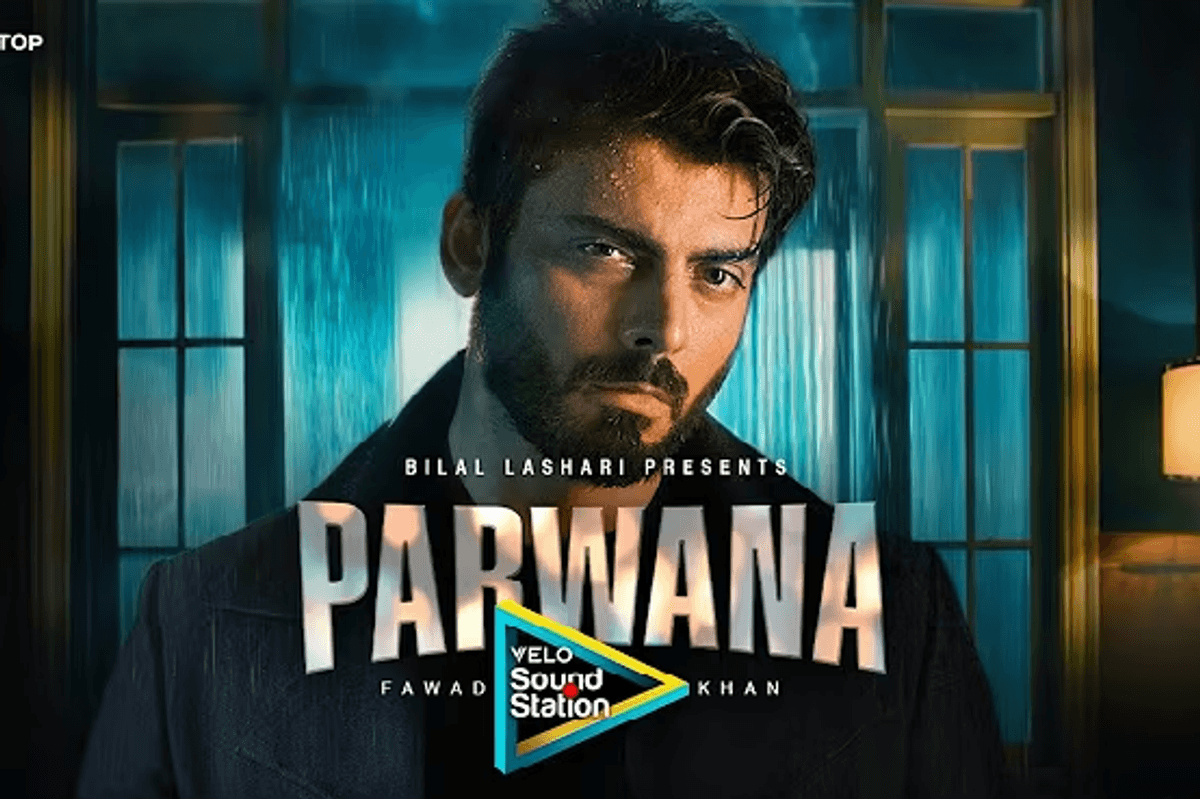Fawad Khan returns: Parwana reignites his musical legacy
VELO Sound Station closes Season 3 with a haunting return to form

Sibte Hassan
Correspondent, Karachi Pakistan
Syed Sibte Hassan Rizvi is a seasoned multimedia journalist with over 12 years of experience. He has worked as a news correspondent, covering various beats for Pakistan's leading news channels.

Fawad Khan's Parwana
VELO Sound Station YouTube
Fawad Khan returns with a haunting, emotional track — his most personal in years
Echoes the soul of EP classics Waqt and Hamesha — reimagined for a new generation
After years away from the spotlight — and a film stalled indefinitely by cross-border tensions — Fawad Khan is finally back, not through cinema, but through music. His latest release, Parwana, the final track from VELO Sound Station Season 3, isn’t just a comeback — it’s a reinvention. Stripped of excess but packed with emotion, it’s a reminder of why Fawad remains one of Pakistan’s most magnetic performers.
The song dives into dark, emotional terrain. Penned by Adnan Dhool and composed by Hasil Qureshi, Parwana is a slow-burning track about a love that consumes — one that sears, stays, and scars. It's the kind of storytelling that bypasses performance and hits directly at the gut.

Visually, the track stays just as raw. Directed by Bilal Lashari and supervised by VFX artist Umar Garcia Tariq, the music video leans heavily into minimalism. We see Fawad alone indoors as rain streaks past the windows, shadows stretch across the room, and a dark cloud — created entirely through VFX — follows him like guilt, grief, or memory. The effect is quiet but emotionally loaded.
There’s no crowd. No band. No theatrics. Just Fawad, a room, and an emotion thick enough to cut through.
For longtime fans, Parwana is impossible to experience without remembering Waqt and Hamesha, two standout hits from Fawad’s early days with rock band Entity Paradigm (EP). The vocal intensity is still there, but the rage has settled into reflection. Instead of yelling through the pain, he sits with it, letting the silence, the visuals, and the lyrics do the heavy lifting.
And that’s what makes Parwana so effective: it’s not loud, but it echoes. It’s not explosive, but it burns.
This isn’t just a track — it’s a return to roots with a grown-up lens. Fawad’s performance is restrained but raw, and every choice, from production to pacing, feels intentional.
In a media landscape obsessed with virality and noise, Parwana takes its time. It invites you to sit with your feelings, especially the ones you’d rather avoid. And in doing so, Fawad Khan doesn’t just remind us of who he was. He shows us who he’s become.
The king is back — quieter, sharper, deeper.







Comments
See what people are discussing